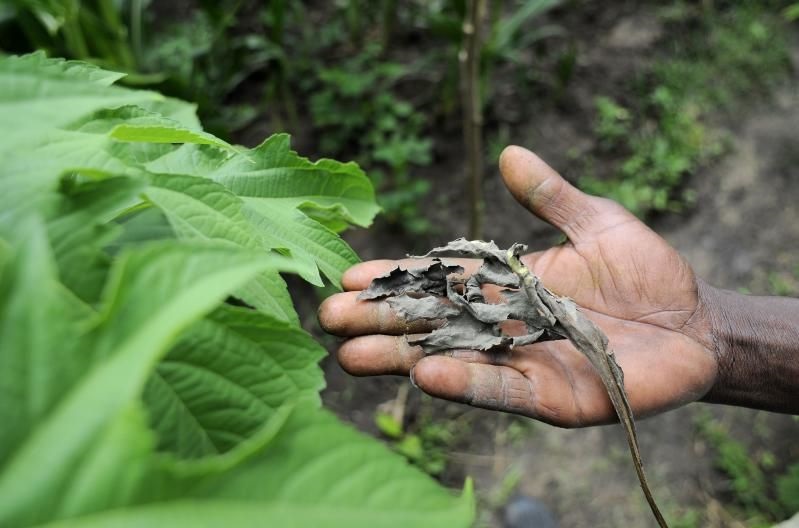
Top stories



Marketing & MediaCensorship concerns rise as Uganda blocks live coverage of election protests
Reuters 1 day



According to the FAO, CSA is an approach that helps boost agricultural systems to effectively support development and ensure food security in the midst of climate change.
The guide launched in Kenya last month (16 May) by scientists from the International Center for Tropical Agriculture (CIAT) at the African Climate-Smart Agriculture Summit, gives a comprehensive understanding of CSA, including country institutional, policy and financial environments for the adoption of the practices. "While there is high-level support for CSA, the adoption of CSA remains low, largely due to the lack of knowledge on CSA practices and the often high upfront economic capital costs, among other barriers," says Sebastian Grey, a climate change scientist at the CIAT.
Grey adds that the CSA profile concept was designed to guide a $250m-sponsored World Bank CSA project, but the development of the guides for African countries began in 2016. Profiles have since been produced for Benin, Côte d’Ivoire, Ethiopia, Kenya, Lesotho, Mali, Mozambique, Niger, Rwanda, Senegal, Tanzania, Uganda, Zambia and Zimbabwe.
The CSA country profiles gives an overview of the agricultural context and challenges in each country through a CSA lens, and provide a snapshot of the key issues, challenges, constraints, opportunities and enabling factors for scaling up the adoption of climate-smart agricultural practices along specific value chains, he explains. This riskiness in agriculture leads to finance and insurance often being unavailable or only available at high double-digit lending rates and extremely high insurance premiums.
"The CSA country profiles inform governments, development partners, civil society and the private sector on key climate risks in agriculture and which CSA practices have greatest potential to reduce these risks in specific locations," Grey tells SciDev.Net, adding that the guides highlight the barriers and opportunities for where investments could best be made with greatest returns in terms of the three CSA pillars: increasing productivity, improving resilience and reducing greenhouse gas emissions.
The profiles, according to Grey, provide key information needed to de-risk agricultural investments, helping to make agriculture resilient to climate change. "De-risking is critical for unlocking agricultural finance by allowing investors, project developers and governments to reduce the possibilities of negative or unsatisfactory outcomes," he explains.
According to Chris A. Shisanya, an expert in climatology and integrated watershed management tells SciDev.Net that these guides are timely and provide the much-needed evidence for guiding investors interested in CSA. Much as business is about taking risks, the guidelines provide a framework within which the investors in climate-smart agriculture could minimise these risks, Shisanya adds.
"CSA is neither a prescribed system or practice nor a specific technology that can be universally applied," explains Shisanya, who is a professor and dean, School of Humanities at Social Sciences at Kenya’s Kenyatta University.
"Rather, it is an approach that necessitates context-specific assessments of social, economic and ecological conditions in order to identify appropriate farming technologies and practices," Shisanya tells SciDev.Net that governments could play a key role in enabling scaling up of CSA in sub-Saharan Africa. "The successful adoption and scaling up of CSA practices require a good understanding of the political, socio-economic and agro-ecological contexts," he adds.
This piece was produced by SciDev.Net’s sub-Saharan Africa English desk.